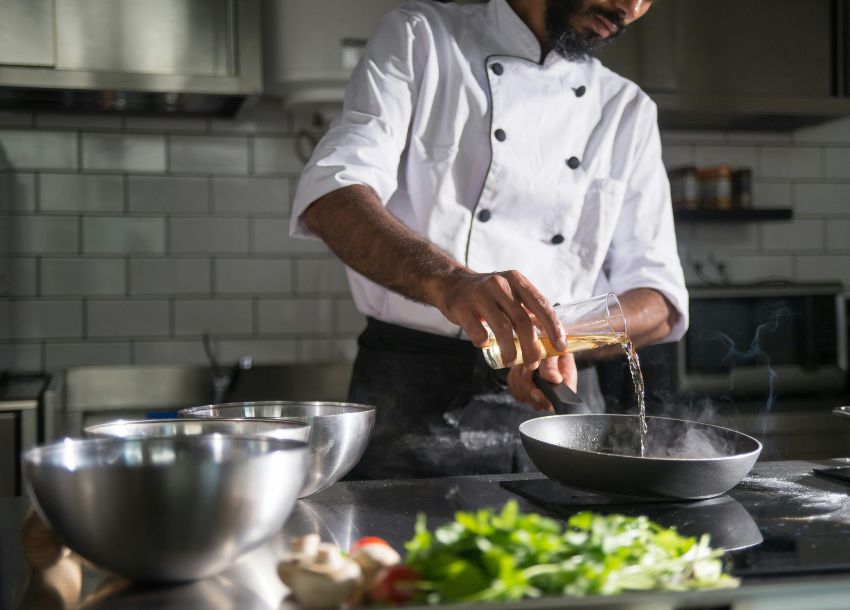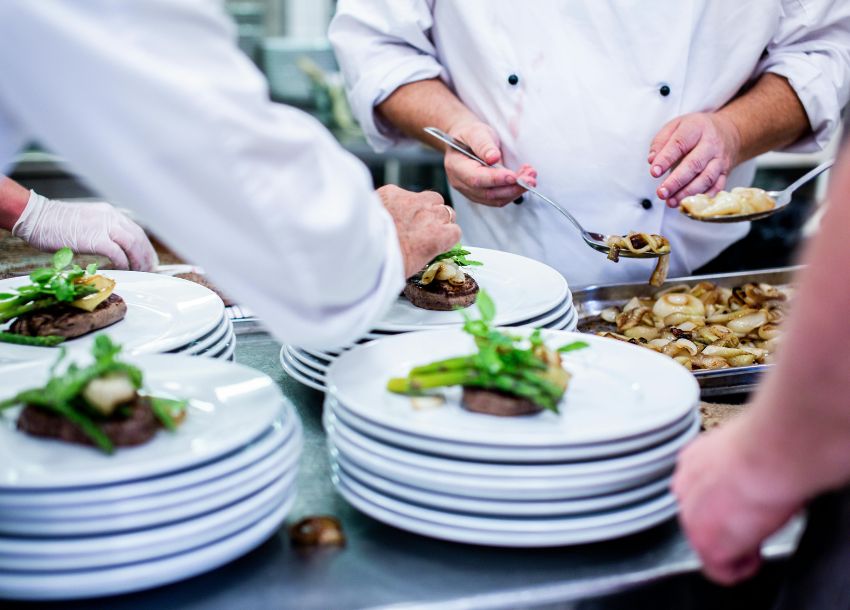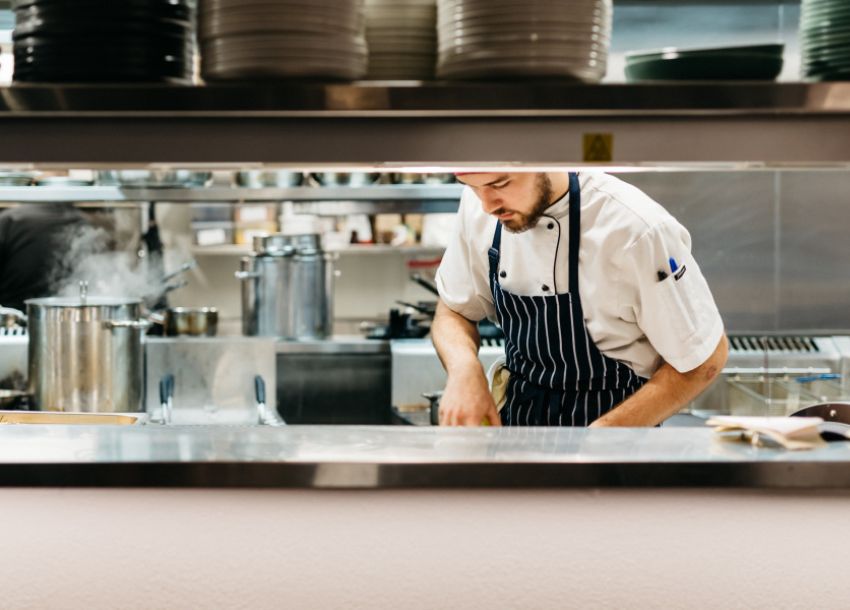Chef de Partie Interview Questions: How to Stand Out
- Interviews
- Sep 14
- Share post

If you’re preparing for chef de partie interview questions, chances are you already know how to run a section, handle pressure, and work clean. But when it comes to the interview, knowing what to expect and how to answer confidently can give you the edge over other chefs with the same experience.
In this guide, we’ll walk through the most common chef de partie interview questions, how to prepare for them, and the qualities head chefs are really looking for.
What Head Chefs Look for in a CDP interview
The chef de partie isn’t a beginner’s role. It’s often the first time you’re truly responsible for leading a section during service. That means head chefs aren’t just looking for cooking ability – they’re looking for mindset.
Expect to be assessed on:
- Ownership: Can you manage your prep and section without being chased?
- Composure: How do you react when tickets are flying in?
- Teamwork: Are you communicating with others, helping juniors, backing up the pass?
- Cleanliness & efficiency: Is your workspace safe, clean and organised?
- Being calm, clear and confident in your answers shows you understand the demands of the role.
5 Common Chef de Partie interview questions (and how to answer them)
Use the below examples to help you prepare for your next CDP interview:
1. What’s your favourite thing to do in the kitchen?
Why they ask: This tells them what section you’re most passionate about and where you might fit best.
How to answer: Be honest, but link it to strengths: e.g., “I really enjoy the grill because I like timing multiple steaks while keeping the board clear.”
2. How would you react to a head chef’s instruction if you thought it was wrong?
Why they ask: They want to see how you handle hierarchy and pressure.
How to answer: Show respect and control. Try: “I’d follow the instruction, but after service I’d ask if I could clarify something.”
3. How do you keep your station organised and sanitary?
Why they ask: Hygiene is critical, especially during busy service.
How to answer: Mention systems: colour-coded boards, FIFO rotation, constant wiping, labelled prep, bin organisation.
4. Tell us about a time you were under serious pressure in the kitchen?
Why they ask: They want proof that you’ve been in the weeds and can bounce back.
How to answer: Give a quick example and what you learned. “We had 50 unexpected covers in one hour. I stayed focused, communicated with the sous and kept my board moving.”
5. What makes a great kitchen team in your opinion?
Why they ask: Culture matters. They want to know if you’ll add to it.
How to answer: Talk about clear communication, trust, leadership from the top and backing each other up when it gets intense.

Chef de Partie interview questions:
Quick tips to help you stand out
- Be on time and clean – seriously, it matters.
- Show interest in the food and the team, not just the job.
- Don’t badmouth old kitchens – focus on what you learned.
- Ask a smart question at the end like: “How do you support chefs stepping into leadership for the first time?”
Want to step up as a Chef de Partie?
If you’ve been running a section, mentoring juniors or thinking like a leader, you’re already doing the job. The interview is just your chance to show it.
Remember: preparation is mise en place for your mind.
Final thoughts
Standing out in a chef de partie interview isn’t about having the flashiest CV or the fanciest training. It’s about proving you can lead a section, keep your head when the pressure builds and be the type of chef others trust to work alongside. Employers want to see evidence of reliability, composure and genuine passion for food – all wrapped in answers that show self-awareness and professionalism.
Treat the interview as your first service in a new kitchen: be sharp, stay calm and let your preparation speak for itself. A strong CDP doesn’t just hold their own – they lift the brigade.
–
FAQs – Chef de Partie interview questions
Do I need formal qualifications to become a CDP?
Not always. Most CDPs have either a few years of experience as a commis or a culinary qualification like Cert III or NVQ Level 3.
Should I bring my own knives to the trial shift?
Yes. Bringing your knives shows professionalism and confidence. For more about trial shifts and tasting interviews visit: Chef Tasting Interview – Guide to Success.
Can I talk about past mistakes in interviews?
Absolutely – as long as you show what you learned and how you’d handle it differently now.
How long is a typical CDP interview process?
Usually, 1 interview and 1 trial shift. Some places combine them.
What if I’m nervous?
Normal. Breathe, slow down and treat it like service: focus on one answer (or one plate) at a time.
You might also find these useful:
Comments
Add a comment
Leave a Reply · Cancel reply
You must be logged in to post a comment.

